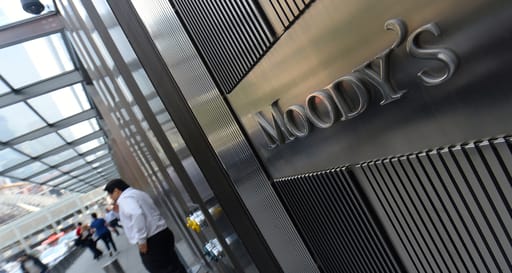Receive Focus insights straight to your inbox
It’s undoubtedly a tough economic year ahead for South Africa and the February budget will be key in setting the tone for economic activity and growth in South Africa this year.
The economy has begun 2020 on a low. It’s expected that last year’s growth will be recorded at only 0.2 percent while 2020 forecasts, including that of the World Bank, for this year are at less than one percent.
The International Monetary Fund (IMF) has also lowered the country’s growth forecasts to 0.8% for 2020 and 1.0% for 2021.
Indeed, the South African Reserve Bank forecast “for GDP growth for 2019 is revised lower to 0.4% (from 0.5%). The forecasts for 2020 and 2021 have also decreased to 1.2% (from 1.4%) and 1.6% (from 1.7%), respectively, due to lower growth than previously expected in the third and fourth quarters. The GDP forecast for 2022 is 1.9%.”
LISTEN: Tough economic year ahead
In this Focus radio podcast, Investec Chief Economist Annabel Bishop discusses the economic year ahead for South Africa and the key events that will shape growth.
Eskom’s load shedding
The load shedding that crippled crucial sectors in some periods of last year persists, with black outs in the first week of the year. The intermittent power supply has been largely to blame for a drop in production numbers of key industries like manufacturing and mining.
“The weak growth outcome for last year is largely due to insufficient electricity, the heavy load shedding in the first quarter of last year and again in the fourth quarter of last year and even the third quarter was negatively impacted,” said Investec Chief Economist Annabel Bishop.
“All of this really feeds through to reducing the production capacity of the economy, not having sufficient electricity or productive capacity for producers like manufacturers and miners.”
Problems at the utility have been blamed on lack of skills, poor leadership and possible corruption. Poor and unmaintained infrastructure has also contributed to load shedding.
“Another challenge for us structurally is that many of our power stations are extremely old and aging and as a consequence of that, they all start to be less productive and it’s a worry because it means we could have more outages,” said Bishop.
In a bid to clean up Eskom, government has resolved to is restructure the parastatal into three business units of generation, transmission and distribution.
However, those turnaround plans are yet to be implemented. In the meantime, Eskom continues to negatively impact the country’s economic growth and poses the biggest threat to GDP.

Moody's decision
Electricity problems in the country are under the microscope at Moody’s.
At the top of list for South African financial woes is Eskom’s debt weighing heavily on government’s balance sheet, bailouts for a number of state-owned enterprises and the public sector wage bill.
“Eskom’s debt is one of the reasons why we face a Moody’s credit rating downgrade placing that debt on our balance sheet. Moody’s now assesses South Africa as including Eskom’s debt as well and indeed a number of other guarantees. We have seen money pumped into Eskom to try and keep it afloat.”
These factors have put South Africa in line to receive a credit rating downgrade which will add to market volatility, setback much needed investment and shake an already unstable rand.
The credit rating agency has the country on edge with a possible downgrade to junk status in March, after it dropped South Africa’s outlook to negative warning that “the development of a credible fiscal strategy to contain the rise in debt, including in the 2020 budget process and statement, will be crucial to sustain the rating at its current level.”
“If the budget makes sufficient expenditure cuts in the fiscal projections and indeed those will result in the reduction in the debt and deficit projections and if it’s enough, we might see the rating agency change the outlook back to stable.”
”Unfortunately while there are probably going to be adjustments in the budget, they may as well prove not to be enough to cause an immediate move back to stable outlook and we may still find ourselves at a negative outlook after the budget.”
At the same time, the Monetary Policy Committee (MPC) is also waiting to see what the budget holds and what decision Moody’s will make before it considers another interest rate cut again. At its January 2020 meeting, it reduced interest rates by 25 basis points.
“People thinking that interest rates cut could actually change the growth outlook dramatically are mistaken. It will have a very marginal impact on growth and the big change need to come from structural reforms.”
What needs to happen to stimulate growth
National Treasury has to work to curb a growing budget deficit and debt while trying to balance the books between government expenditure and revenue.
This in the face of low business, investor and consumer confidence .
Substantial fiscal consolidation in the budget would go a long way to assure the market, investors, credit rating agencies and pave the way for economic recovery.
Importantly, what is need is structural reforms such as stabilising state-owned enterprises, particularly Eskom, political will to implement the National Treasury’s growth plan and tangible action to recover from 10 years of state capture.
About the author

Lenyaro Sello
Digital content specialist
Lenyaro is a key member of Investec's Global Content team, based in Johannesburg, who focuses on relevant and topical issues for internal and external audiences including clients. She is a well-travelled multi-skilled multimedia journalist who previously held roles within eNews Channel Africa (eNCA) and Eyewitness News (EWN).








